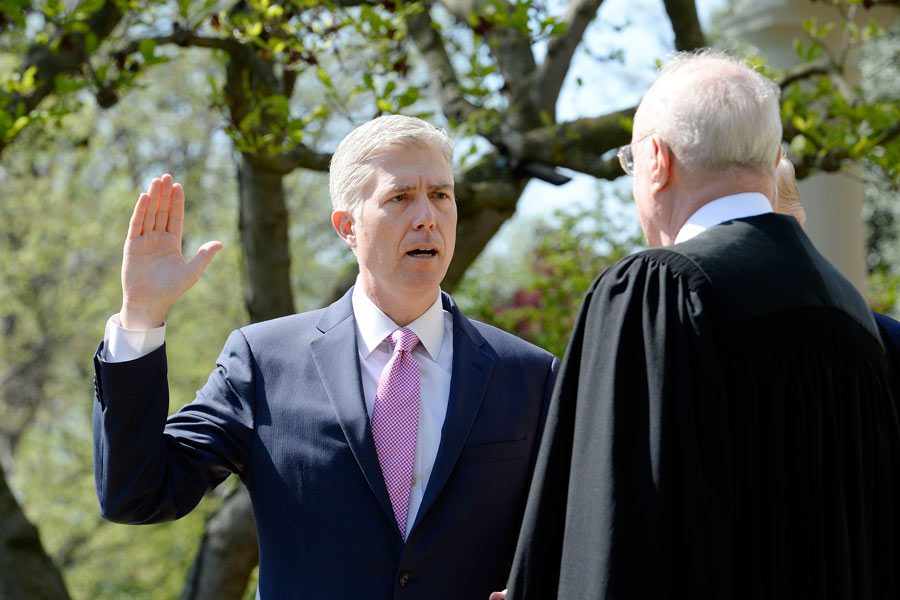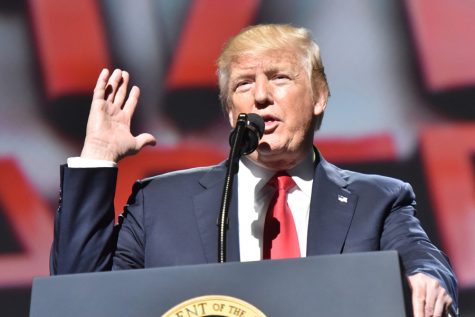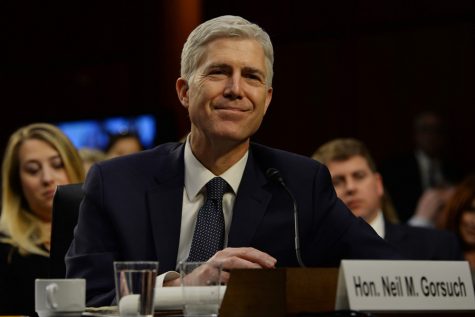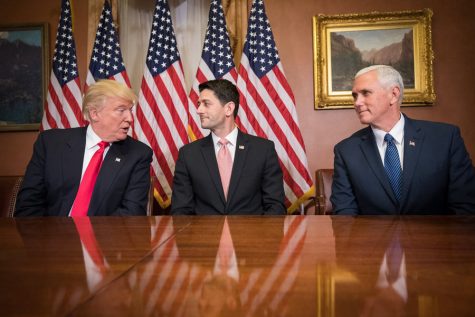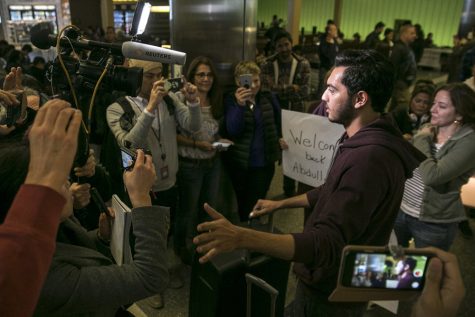A nuclear confirmation
Empty Supreme Court seat filled by judge Neil Gorsuch
Photo by Olivier Douliery. Used with permission.
Justice Anthony Kennedy swears in Neil Gorsuch as an Associate Justice of the Supreme Court during a ceremony at the White House Rose Garden April 10, 2017 in Washington, D.C.
April 10, 2017
Four hundred and twenty two days, two nominees and the triggering of the nuclear option later, the seat left vacant by the passing of the renowned Justice Antonin Scalia has been filled. Neil Gorsuch, nominated by president Donald Trump, was confirmed by the United States Senate to be the 113th Supreme Court Justice by a vote of 54-45 on Friday.
The road to his confirmation was not an easy one, as Gorsuch faced stiff questioning and criticism from the Democratic minority in the Senate. The Democrats, headed in the Senate by minority leader Chuck Schumer, were not impressed with the candidate and tried to deny Judge Gorsuch from taking the bench.
“Judge Gorsuch was not able to convince me that he would be an independent check on a president who has shown almost no restraint from executive overreach,” Schumer said. “He was unable to convince me that he would be a mainstream justice who could rule free from the biases of politics and ideology.”
After two months of hearings, Senator Schumer decided that the nominee was not sufficient, and decided to filibuster the vote, not allowing Gorsuch to be confirmed.
In response to the hard push back on his own Supreme Court nominee, Donald Trump told Senate Majority Leader Mitch McConnell to “go nuclear” in order to confirm the judge. The “nuclear” option that President Trump was referring to was to change the rules of confirming a Supreme Court Justice. In the past, 60 votes were required to end filibusters during Supreme Court nominations and move to cloture. Such rules created a system where the vote had to be bipartisan in order for the nominee to be confirmed. On Thursday, the 52-seat Republican majority voted in favor of forever changing the rules.
“If you can’t get the candidate confirmed, you don’t change the rules, you change the candidate,” economics teacher Angela Spence said. “If you change the rules this one time, it lets it be partisan every time. With the Democrats and Republicans being at odds with each other, probably over everything, you still have to find some common ground. Not to say that [Gorsuch] was not a good candidate, but I think that they could have found someone that both sides could get behind, so I totally disagree with what the Republicans did.”


